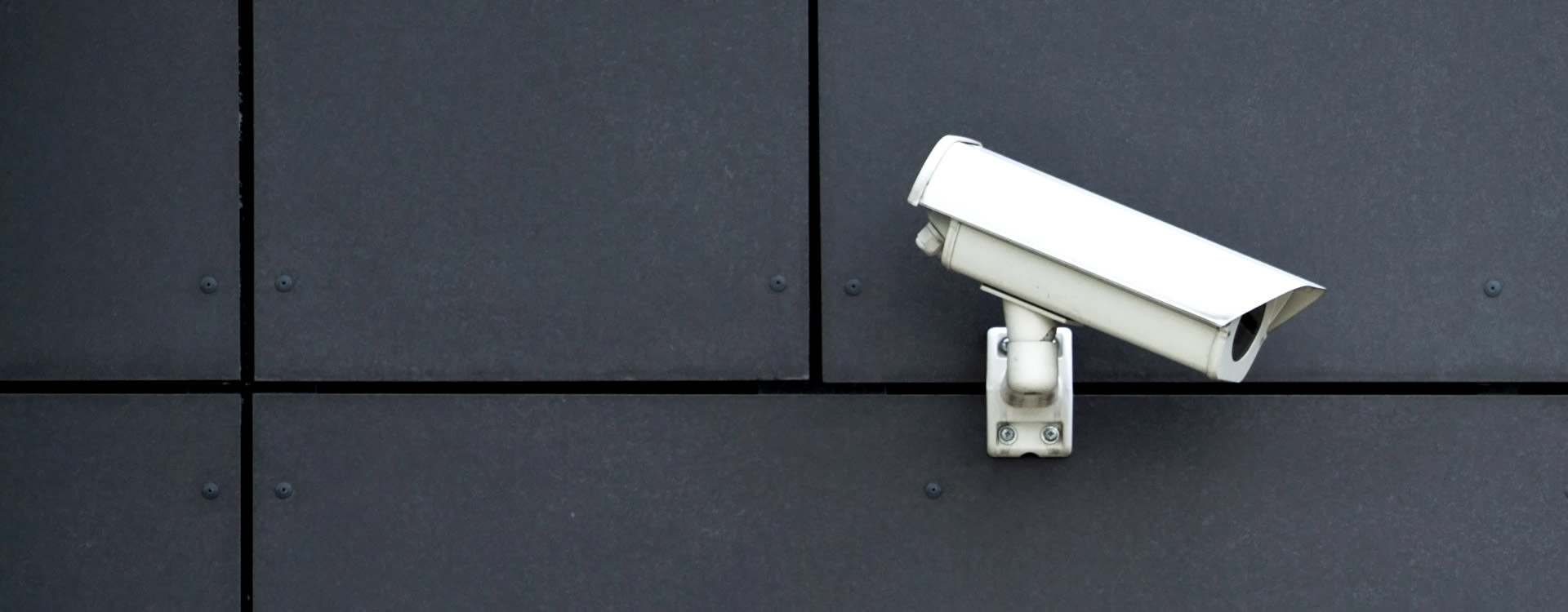 With advancing technology becoming more and more present in our daily lives, it’s no wonder it’s becoming part of our homes too. From solar panels on our roofs to remotely controlled thermostats, we are creating homes akin to the Jetson’s space age abode. Unlike the Jestson’s most of us still live in homes on the ground without robot housekeepers and flying cars.
With advancing technology becoming more and more present in our daily lives, it’s no wonder it’s becoming part of our homes too. From solar panels on our roofs to remotely controlled thermostats, we are creating homes akin to the Jetson’s space age abode. Unlike the Jestson’s most of us still live in homes on the ground without robot housekeepers and flying cars.
Whether or not technology is pushing us towards zero-gravity transportation, one thing is for sure, our homes are advancing with us. Look how far we’ve come in such a short period of time. Starting with the inception of the internet around 1962, we’ve gone from the most simplistic data sharing capabilities to now virtually living online. We can take the internet with us on our phones, tablets, laptops, and other wireless devices; it’s an integral part of our communication systems. It only makes sense that our physical living spaces are becoming more connected to our mobile lives.
So what does it mean to have a connected home or home automation? It’s being able to wirelessly control devices in and around your home from virtually anywhere in the world via a mobile device (i.e. a smartphone, tablet, etc.). You know that feeling of, “I think I forgot something”? That gut wrenching sensation can be a thing of the past when you include home automation as part of your security system. With home automation or interactive services you no longer have to worry whether or not you forgot to lock your doors or arm the alarm system because you can do it from your phone. You can even check in on your kids, pets, and loved ones by logging into your home security cameras through an app. The capabilities are seemingly endless and the technology behind home automation is only moving forward. Here at Perfect Connections, Inc. we believe in providing superior home security systems that can include sophisticated, yet easy to use, home automation features. Our team of experts has been providing home security system solutions to central and northern New Jersey for the past 23 years. We understand the value in having a connected home, do you?
Convenience
Picture this, you’re coming back from a long vacation, somewhere tropical of course. You’re in the car on the way home from the airport, the cool crisp air of winter in New Jersey lingering on your cheeks. Then it hits you. Your home is in New Jersey, its winter, and you turned the heat way down before you left. Looks like you’re going to be wearing your coat and galoshes around the house until it heats up. The frustration is setting in when you realize, “I can turn up the heat from my phone!”(cue the idea light-bulb). You log into your mobile app and swiftly adjust your thermostat to a comfortable temperature. By the time you get home it’s warm and cozy, no need to stay bundled up.
You log into your mobile app and swiftly adjust your thermostat to a comfortable temperature. By the time you get home it’s warm and cozy, no need to stay bundled up.
Being able to adjust your home climate from afar is just one of the many conveniences home automation provides. You can lock and unlock doors, open/close garages, turn lights on and off, log into your security cameras to see what is going on at your house, and arm or disarm your alarm system. With a firm understanding of how your home automation works, you can program notifications and optimize different features of your home and security system.
Savings
Aside from being a convenient addition to your everyday life, home automation can actually save you money. Think about your utilities, one of the major money-drainers is electrical use. With programmable lights and the ability to turn them on and off remotely, wasting electricity becomes a thing of the past. The largest portion of your utilities likely comes from heating and cooling your home. Being able to program your thermostats can be a huge saver in energy costs throughout the course of a year. Never mind the fact that you’d be enhancing your homes overall efficiency.
Environmental Impact
When it comes to wasting energy, the U.S. is unfortunately no stranger to inefficiency. According to Forbes.com America ranks number one among developed nations, even ahead of China, for energy waste. Energy inefficiencies impact not only our environment, but our economic status as well. In fact low energy productivity in the United States is estimated to cost businesses and households an estimated $130 billion annually. While home automation may seem like a small piece of the energy-efficiency pie, imagine if every home could cut their waste even by a small percentage; the impact would be substantial.
Peace of mind
Yes, home automation can save you money. Yes, it can increase your home’s efficiency. Yes, it gives you the capability to monitor your alarm system from afar. Yes, it saves you time and aggravation. The best side effect is one that can’t be measured by the money in your bank account or the bottom line on your utilities bill. It’s the peace of mind you gain. That feeling of knowing your kids are home safe from school because you were able to see them arrive. Knowing that your home and valuables are safe while you’re on vacation. Receiving customized notifications that are specific to your needs and schedule. You can’t achieve the same peace of mind from a security system alone, no matter how sophisticated.
Whether you’re in the market for your first security system or want to add home automation to an existing setup, don’t hesitate to call on our experts at Perfect Connections, Inc.. Our specialists have been providing comprehensive security systems throughout northern and central New Jersey since 1992. We customize security solutions to fit specific needs unique to your home.
If you live or run a business in Central or Northern New Jersey and would like information on any of the topics discussed above, please call 800-369-3962 or simply CLICK HERE.
 With advancing technology becoming more and more present in our daily lives, it’s no wonder it’s becoming part of our homes too. From solar panels on our roofs to remotely controlled thermostats, we are creating homes akin to the Jetson’s space age abode. Unlike the Jestson’s most of us still live in homes on the ground without robot housekeepers and flying cars.
With advancing technology becoming more and more present in our daily lives, it’s no wonder it’s becoming part of our homes too. From solar panels on our roofs to remotely controlled thermostats, we are creating homes akin to the Jetson’s space age abode. Unlike the Jestson’s most of us still live in homes on the ground without robot housekeepers and flying cars.
 Assisted living facilities are dynamic environments. You have occupants with varying levels of medical needs alongside administrative, medical, and visiting personnel. It’s a somewhat complex security issue because residents and staff need to be able to move throughout the facility freely, but unauthorized entrants must somehow be kept out. The mental health and acuity of residents can also be a cause for concern. In an aging population medical conditions like dementia and Alzheimer’s can cause residents to wander off or get lost which is a major concern for staff and resident relatives. Thankfully by implementing security system solutions many of these concerns can be addressed.
Assisted living facilities are dynamic environments. You have occupants with varying levels of medical needs alongside administrative, medical, and visiting personnel. It’s a somewhat complex security issue because residents and staff need to be able to move throughout the facility freely, but unauthorized entrants must somehow be kept out. The mental health and acuity of residents can also be a cause for concern. In an aging population medical conditions like dementia and Alzheimer’s can cause residents to wander off or get lost which is a major concern for staff and resident relatives. Thankfully by implementing security system solutions many of these concerns can be addressed. When you think motion detectors (or sensors) you might picture a heist scene from the movies where a thief has to perform acrobatics in order to avoid a web of alarm triggering laser-beams surrounding a priceless gem. While that narrative is not necessarily complete fiction, it’s not exactly how motion detection is implemented in the real world. In modern day applications security system integrators use motion detectors to sense unwarranted movement within or outside of a home or facility. Motion detectors are typically implemented as an essential part of a comprehensive security system meant to help detect an intruder. There are different types of detectors and their applications are not necessarily synonymous.
When you think motion detectors (or sensors) you might picture a heist scene from the movies where a thief has to perform acrobatics in order to avoid a web of alarm triggering laser-beams surrounding a priceless gem. While that narrative is not necessarily complete fiction, it’s not exactly how motion detection is implemented in the real world. In modern day applications security system integrators use motion detectors to sense unwarranted movement within or outside of a home or facility. Motion detectors are typically implemented as an essential part of a comprehensive security system meant to help detect an intruder. There are different types of detectors and their applications are not necessarily synonymous. When you’re a homeowner one of your top priorities is ensuring the safety of your home. Your home is what protects you and your family. Nobody wants to deal with a home break-in but they are a sad reality in our everyday lives. Fortunately there are many ways you can safeguard your home from such devastation. The best way to deter crime is to be prepared for it. If you want to prevent a home invasion you must first understand how and when burglars are likely to attempt them. At
When you’re a homeowner one of your top priorities is ensuring the safety of your home. Your home is what protects you and your family. Nobody wants to deal with a home break-in but they are a sad reality in our everyday lives. Fortunately there are many ways you can safeguard your home from such devastation. The best way to deter crime is to be prepared for it. If you want to prevent a home invasion you must first understand how and when burglars are likely to attempt them. At  Assisted living facilities are a way our aging community can be cared for and maintain a sense of independence. As a caregiver you can never be too careful or particular when searching for geriatric care for a loved one. They’re your family and you want them to be cared for as well as they cared for you. That begs the question how do you know that the facility you’re looking at is the right one for your loved one?
Assisted living facilities are a way our aging community can be cared for and maintain a sense of independence. As a caregiver you can never be too careful or particular when searching for geriatric care for a loved one. They’re your family and you want them to be cared for as well as they cared for you. That begs the question how do you know that the facility you’re looking at is the right one for your loved one?

